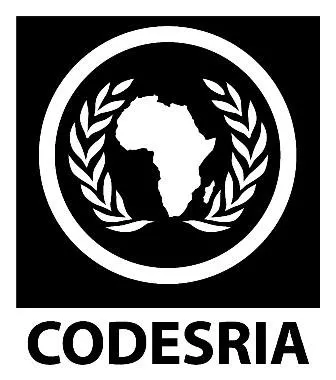Méthod(e)s, African Review of Social Science Methodology, is an international journal published twice annually in French and English. It is another invaluable addition to the already substantial stable of CODESRIA journals.
CODESRIA’s mission includes the development of high quality scientific knowledge on Africa and the affirmation of its presence in international knowledge production circles. The new journal aims at consolidating the epistemological foundations of social science in Africa while also ensuring its continuous relations with the general history of social science in which Africa contributes new knowledge with a high level in originality of approach, in line with the singularity of its social history. Although an African initiative, Méthod(e)s covers all methodology issues, regardless of their location and historical trajectory. In this regard, the new journal is multidisciplinary and international in perspective.
The mastery of research methods and procedures is imperative for scientific innovation. In fact, the quality of any research depends on the rigour of investigation procedures. It is therefore important today to insist on improving methodology capacities, as the gateway to innovative African scientific production of international standards. Aware of the fundamental status of research training, CODESRIA has, for a number of years, initiated methodology workshops designed for researchers to enhance their contribution to the accumulation and consolidation of methodology gains for future generations.
To further strengthen the methodology and epistemology capacities of African researchers, CODESRIA has decided to add an impetus to its set of methodology workshops and teachings in African universities by launching a journal entirely devoted to methodology debates. The aim of such an initiative is to facilitate exchanges on pedagogic experiences and harmonisation of theoretical, historical and technical foundations of social science research suitable to African social dynamics. This scientific journal is intended to be a permanent discussion forum on the various aspects of social science research as they apply to Africa. This is because it has been discovered that the best way to institute a culture of methodological rigour in African universities is to engage in a debate on the epistemological and historical foundations that would contribute to the building of a methodology relevant to the exigencies of the African social and pedagogic context.
Contributions for publication in Méthod(e)s fall in the following broad areas:
- Critical epistemological reflections on research procedures and techniques;
- Confrontation between fields and theories in social science research;
- Problems pertaining to research pedagogy (highlighting the complementarities
that exist between abstraction and concrete engagement in data collection); - Reflections on the origins, constraints and modalities in the use of various data
collection techniques; - Issues pertaining to reading, writing and various forms (oral, graphic, visual) of research result presentation;
- Reflections on issues pertaining to the ethics of the researcher throughout the
research process and his/her relationships with his/her social and institutional environment; - Identification and critical review of field research and books that contain relevant questions on the ways to concretely undertake scientific studies;
- Methodology problems specific to empirical research;
- The history and methodology of specific disciplines (at the national level and beyond);
- Problems of division of labour between research conception and implementation;
- The elaboration of an African corpus adapted to the African situation.
To ensure maximum interaction among the various aspects of methodological reflection, the journal contains the following columns (sections):
- Thematic Focus or Dossier: This section of the journal contains three to five articles, dealing in a thorough manner with the main theme of each issue that is predefined by the editorial board and often entrusted to one or several guest editors. Based on empirical experiences and theoretical presentations, the debates cover issues related to the heuristic condition of the implementation, and the social function of the human and social sciences in Africa and elsewhere.
- Field Questions: This section is devoted to the issues posed by practical experiences of field research, with a view to confronting epistemological prescriptions with actual experiences and encounters of the researcher, including social and other kinds of constraints faced. A continuous debate could be started on the confrontation between fields and theories in social science research. Fieldwork should include the pedagogic exercise of research in universities and bring about fruitful discussions on the performance in the learning of methods.
- Guest Papers: The journal endeavors to broaden debates among its readers. It reviews articles published in other journals which resonate on the African situation. Priority is given to articles published in languages other than French and English, particularly those by scientific communities of the South. Méthod(e)s is therefore open to the whole world.
- Varia: High level articles that do not quite fit into the theme of a current issue may be published as contribution to current or forthcoming debates.
- Critical Notes: Each issue of the journal contains one or two articles that review one or several important works on method. These reviews are intended to highlight the importance of the issues raised in the work and link them to the various techniques and theories of social science research.
- Book Reviews: Readers are invited to write critical reviews of recent publications received by the editors, in the context of ongoing debates. The careful reading of, and serious engagement with the works of colleagues is an important aspect of the life of any scientific community. This section of the Journal is therefore extremely important.
Méthod(e)s is intended to be more than a journal, by attempting to become a pedagogic resource space. Taking into account the contexts in which most African teachers, scholars, and researchers work (difficult internet connections, for instance), Méthod(e)s seeks to contribute to the dissemination of high level reflections, and high quality research and teaching practices in Africa. Therefore, DVDs will occasionally accompany printed issues of the journal. These may also contain filmed courses (with notes to the trainer), a minimal bibliography and general pedagogic advice for teachers.
Like other CODESRIA journals, Méthod(e)s is available electronically, as a way of maintaining a permanent interaction with its readers.
CODESRIA has entrusted the editorial coordination of this journal to two experienced academics and editors: Professor Fred Hendricks of Rhodes University, South Africa, former Editor of the African Sociological Review; and Professor Jean-Bernard Ouédraogo, Research Director at Centre National de Recherche Scientifique-CNRS, LAIOS (IIAC, CNRS-EHESS) France, and former Deputy Executive Secretary of CODESRIA.
This journal enjoys the support of a large number of people from various parts of the world. Researchers in various disciplines and geographic origins, recognised for the high quality of their work, have expressed interest and accepted to be part of its scientific committee. The international scientific committee of Méthod(e)s is composed of the following personalities: Eric Aseka, Kenyatta University, Nairobi, Kenya; Fernanda Beigel, Universidad National de Cuyo, Argentina; Alexandra Bidet, ENS, Paris, France; Patrick Champagne, INRA, France; Clara Carvalho, Centro de Estudos Africanos, Lisbon, Portugal; Lau kin Chi, Lingnan University, Hong Kong, China; Raewyn Connel, University of Sydney, Australia; Alice Desclaux, IRD, Dakar, Senegal; Mamadou Diouf, Columbia University, USA; Ali El-Kenz, University of Nantes, France; Layi Erinosho, Academy of Sciences of Nigeria, Abuja, Nigeria; Abdou Salam Fall, IFAN-Cheikh Anta Diop University, Dakar, Senegal; Abdellah Hammoud, Princeton University, USA; Fred Hendricks, Rhodes University, South Africa; Babacar Kanté, Université de Saint Louis, Senegal; Jack Katz, University of California, Los Angeles, USA; Amina Mama, University of California, Davis, USA; Takyiwaa Manuh, University of Ghana Legon; Richard Marcoux, Laval University, Quebec, Canada; Stephen Mennell, University College Dublin, Ireland; Jean-Pierre Olivier de Sardan, CNRS, France; Jean-Bernard Ouédraogo, LAIOS (IIAC, CNRS-EHESS) France; Sujata Patel, University of Hyderabad, India; Allen F. Roberts, University of California at Los Angeles, USA; Ebrima Sall, CODESRIA; Lionel Thaver, University of the Western Cape, South Africa; Taladidia Thiombiano, University of Ouagadougou, Burkina Faso; Helen Tilley, Birkbeck, University of London, UK; Mara Viveros, University of Bogota, Colombia; Wenn Tiejun, Renmin University, Beijing, China; and Nelson do Valle Silva, Universidad del Estado de Rio de Janeiro, Brazil.
This journal carries our collective ambition of strengthening the “African” social sciences and enhancing their international visibility. Such an objective will not be attained without the active participation of all African researchers and of all other researchers who are interested in Africa related issues. We would like Méthod(e)s to be a reference journal and a site of innovation and scientific renewal. But this is only possible with your contributions, which we await with great interest. Méthod(e)s is from now on our journal and its success will greatly depend on all of us. I am convinced that you will be glad to help us sustain it with your writing, and to make it known to academic audiences in Africa and beyond, as it symbolises a stage in the growth and development of our African research community, which must keep moving forward towards greater autonomy, a greater affirmation of its epistemological originality, and recognition in the global scientific space within which we must increase our contribution.
The first issue of Méthod(e)s was published in June 2015 being a double issue for the year. Its theme is: “Weak Theory, Bad Data? Heuristic Roles and Practical Limits of Concept in Fieldwork”. It was launched at CODESRIA’s 14th General Assembly in June 2015 in Dakar.
The launch of Méthod(e)s, a journal devoted to social science epistemology and methodology was also, for us in the CODESRIA community, an invitation to take up a new scientific challenge, and to show how determined we are to fully own and successfully sustain the scientific legacy of generations of researchers before us.






